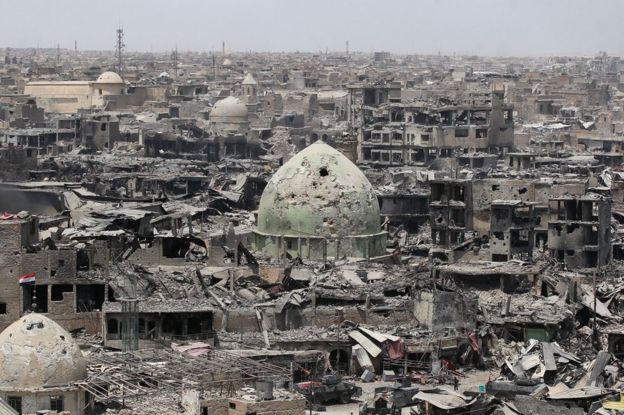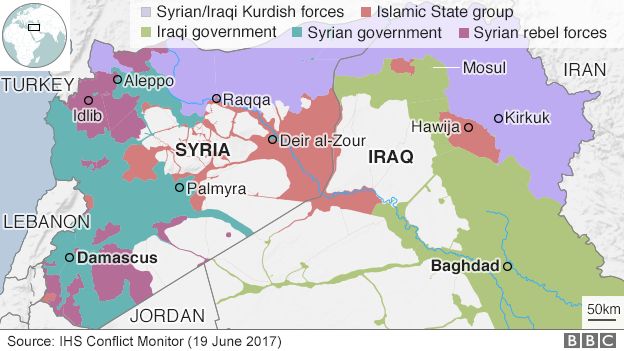- After nine months of fighting, the Iraqi government and US-led coalition have succeeded in their battle to liberate Mosul from ISIS. Iraqi Prime Minister Haider al-Abadi formally declared victory on Monday, just hours after US-led coalition airstrikes dropped bombs on the terror group’s last stronghold in Mosul’s Old City. [Associated Press / Susannah George]
- ISIS had control of the city since 2014, when Islamic State fighters conquered Mosul for part of its self-declared caliphate. The group’s territory stretched across parts of Iraq and Syria. [Brookings Institution / Cole Bunzel]
- At the start of the Iraqi army offensive in November 2016, there were between 3,500 and 5,000 ISIS fighters in Mosul. Their number gradually dropped to a couple hundred before the city was recaptured, according to the US coalition. [CNN / Kara Fox]
- The fighting has completely reduced parts of a once-bustling city to rubble. More than 5,000 building have been destroyed, and civilians are in desperate need of food, water, and basic shelter. [BBC]

- The civilian toll has been brutal. Mosul used to be home to 2.5 million residents. More than 800,000 fled as the fighting intensified, but many left behind were either killed by ISIS militants who hid in highly populated areas or accidentally killed by US-led airstrikes. [NBC News / Petra Cahill]
- Even though physical ISIS territory is being wiped out, the terror group is not likely to go away quietly. [Reuters / Isabel Coles and Stephen Kalin]
- Iraq is a politically unstable region with a power struggle happening between current Prime Minister Haider al-Abadi and former Prime Minister Nouri al-Maliki. ISIS fighters using guerrilla-style warfare tactics like suicide bombs could make a tenuous situation even worse. [Foreign Policy / Renad Mansour]

- There are also fears that ISIS may move to other unstable parts of the Middle East like Libya, or that individual fighters will spread to other countries to carry out smaller attacks. Even though the ISIS caliphate has been dealt a fatal blow, it’s no less active trying to radicalize new recruits over the internet. [CNN / Tim Lister]
|
|